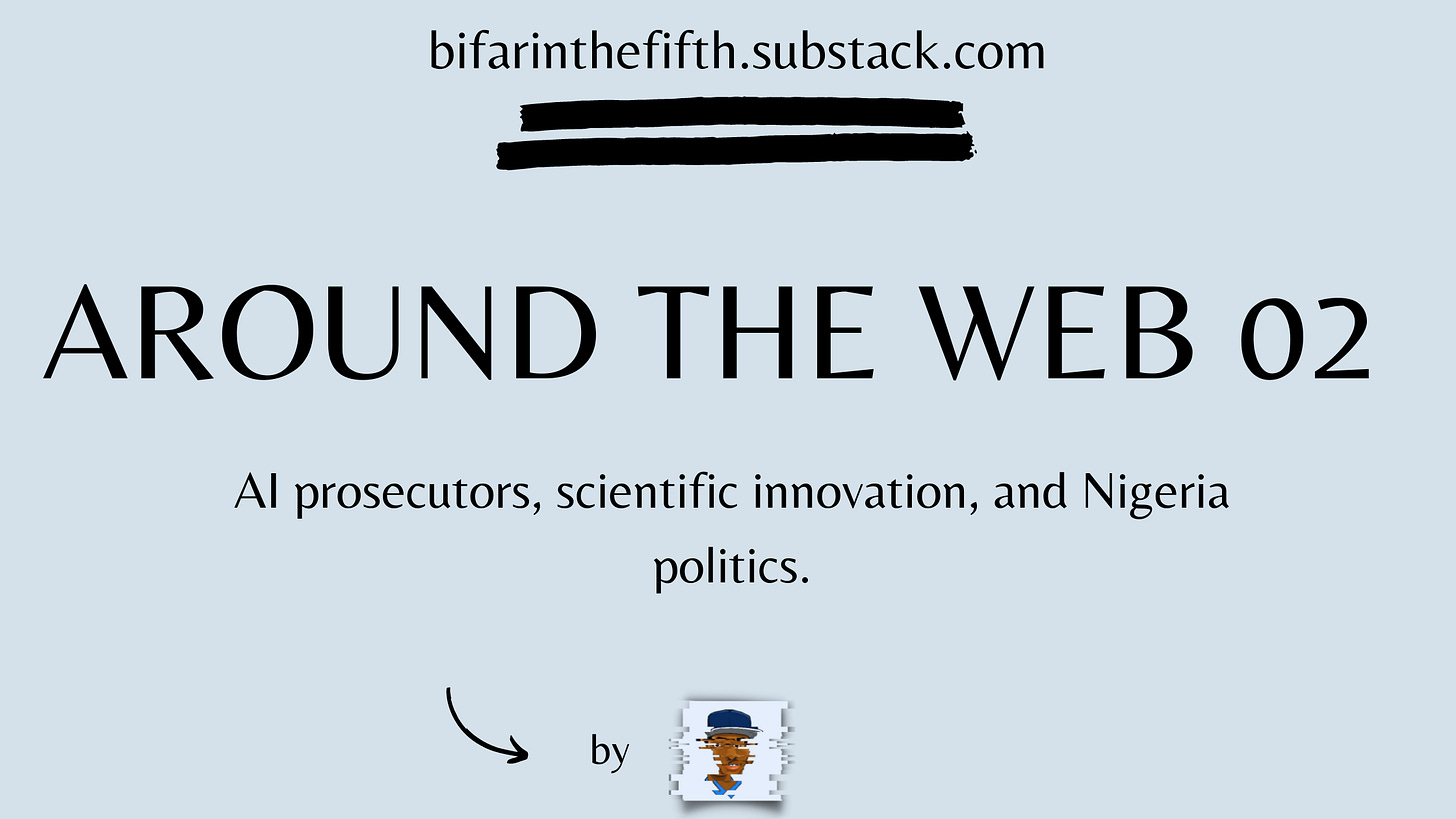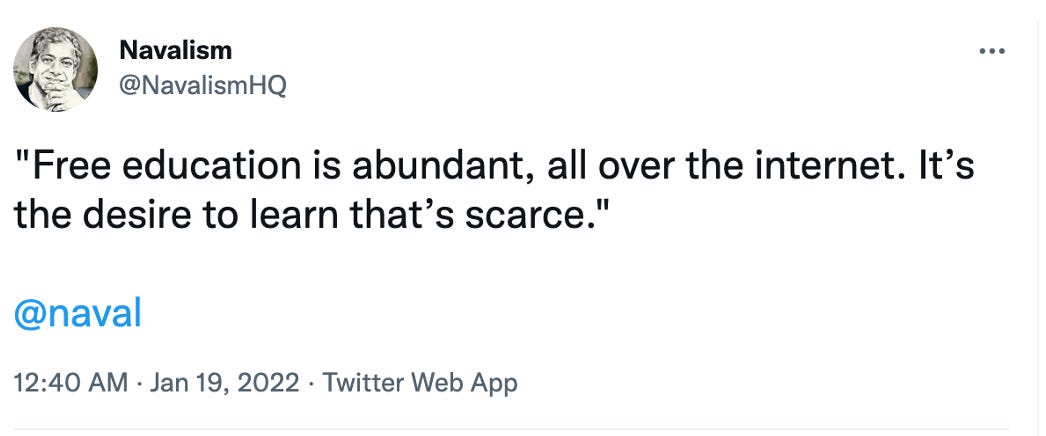1: [Artificial Intelligence] China now has an AI prosecutor that can press charges. Do with that with what you may.
2: [Philosophy of Science] Fr Thomas Davenport, also a professor of physics (I recently learned), talks about how predictable the natural world is in this video for the Thomistic Institute. He argues that scientific determinism is impossible.
3: [Soccer] I saw this highlight of Nigeria’s young goalkeeper: Maduka Okoye. After watching it, I wished that was me at 22. And that save at the 1:05 minute mark is nothing short of crazy. Here is my humble collection.
5: [Science] Scientific innovation might be waning, a study in PNAS shows. Many folks, including, most prominently, investor Peter Thiel have been trumpeting the dearth of science innovation for perhaps, well over a decade now. We just have been carried away with what is going on in the world of bits: our smartphones and Tik-Tok. No?
I didn’t read the PNAS paper, but I read a PNAS blog summarizing it; here are some excerpts:
“There are so many papers coming out in the largest fields of science that new ideas can’t get a foothold, according to a recent study in PNAS. Researchers analyzed citation trends for 90 million papers and found that in very large fields such as molecular biology or electrical engineering, older canonical works tend to be the most frequently cited for decades, while a deluge of newer papers, with potentially groundbreaking ideas, rarely become highly cited.”
“And in these mega-fields, the top 1% of papers get the vast majority of citations. What’s more, even the rankings of these highly cited papers rarely change; the top-cited article in molecular biology came out in 1976 and has been number one since 1982.”
(Fun fact: The most cited article cited above is a paper by Marion Mckinley Bradford, who graduated from the Ph.D. program in Biochemistry at the University of Georgia in 1975. The same program I graduated from last year.)
6: [Nigeria Politics] As Nigeria gears for her 2023 elections, the big boys are now moving the bricks. Tinibu informs President Buhari of his ambition to become Nigeria’s president. Whereas this writer stripped Tinubu completely naked. He wrote, and I quote, “when it is all said and done, history will record that Bola Tinubu used the first part of his life to destroy the last. He was not the first to do so. And he will not be last.” On the other hand, these people say he will fund education for every Nigeria up to the university level as if we have not heard it before. Bode George says he will leave the country if he becomes the president. Dele Momodu says, ‘I have prepared for (the presidency for) over 30 years.’ Anyim Pius Anyim says, ‘I am most qualified to fix Nigeria’, and I have to confess Anyim sounded more coherent and collected than I imagined he will. Governor Dave Umahi says he is interested, so did Senate chief whip Orji Uzor Kalu. With all of these names pandered around, it is hard, if not impossible, to be terribly optimistic about Nigeria’s immediate future. It’s probably going to be a long ride. Whereas, I enjoyed listening to Seun Kuti on Nigeria here.
7. [Economic History/Geopolitics]: I came across Ray Dalio not long ago, and I have enjoyed his macroeconomics lectures. He sat down with Lex Fridman for a podcast about his recently published book. He talked about China, competition with the United States, Elon Musk, Cryptocurrency, his principles, and the like.
8: [Random]
Me: Good thing I never tweet.
9: [Education]
Charge money (from those who can afford it), and the desire to learn will be ignited. Unfortunately, we are not wired to appreciate constitutively free stuff. It is the same reason 99%(?) of us are chronic procrastinators (time appears constitutively free.) We can improve, but we cannot be cured. IMO.
What I am Reading
Lysis By Plato
Modern Computer Vision with PyTorch: by V Kishore Ayyadevara and Yeshwanth Reddy





"Charge money (from those who can afford it), and the desire to learn will be ignited. Unfortunately, we are not wired to appreciate constitutively free stuff."
I think the reason why we learn less online despite the abundance of knowledge and information is that, physical classes offer two things that online education does not: structure and cohort effect.
It takes a remarkably driven person to set up the structure that allows them to continue to learn. For the rest of us, people learn better when they get with this structure and have other people in group aiming for the same group. Classrooms do this for students.
Even people who pay for online education and resources routinely do not finish them. I know courses I paid for that I'm yet to finish 🙂